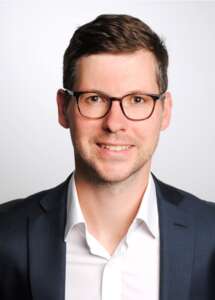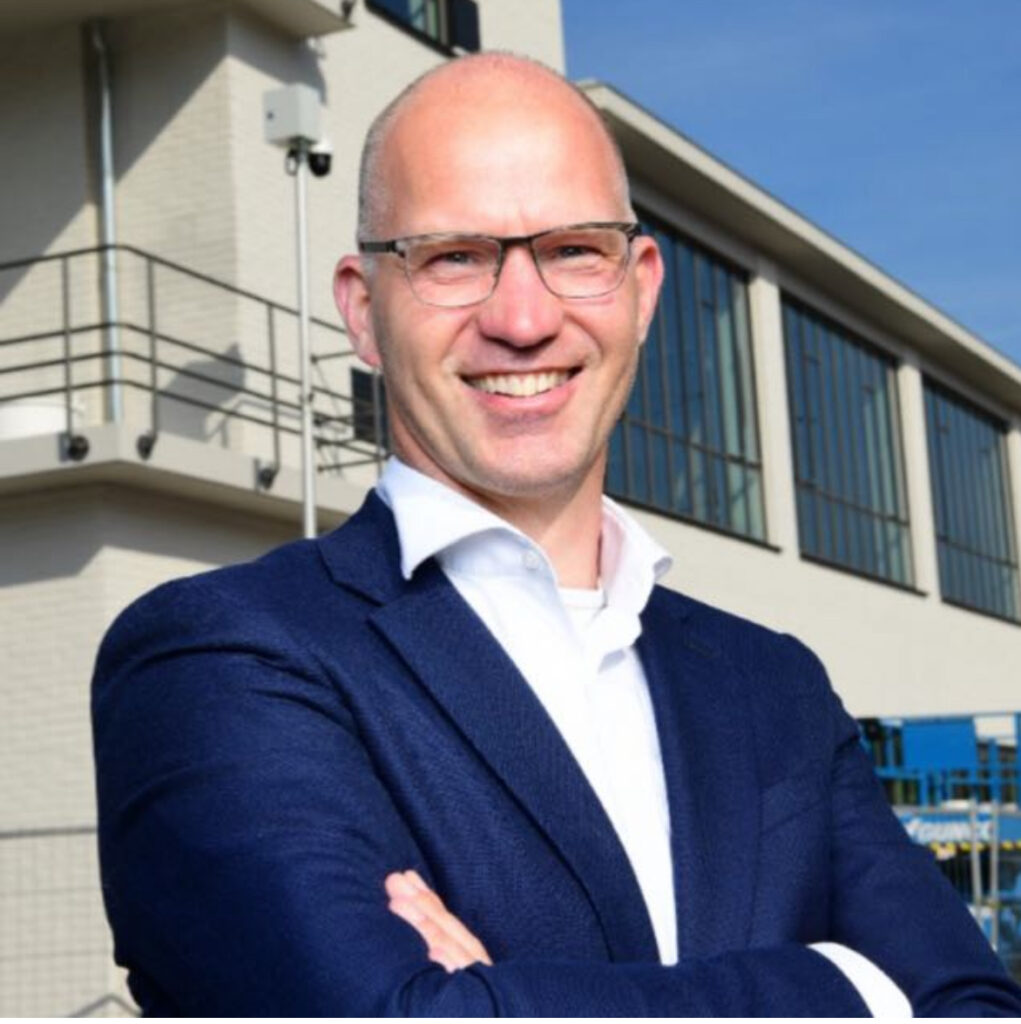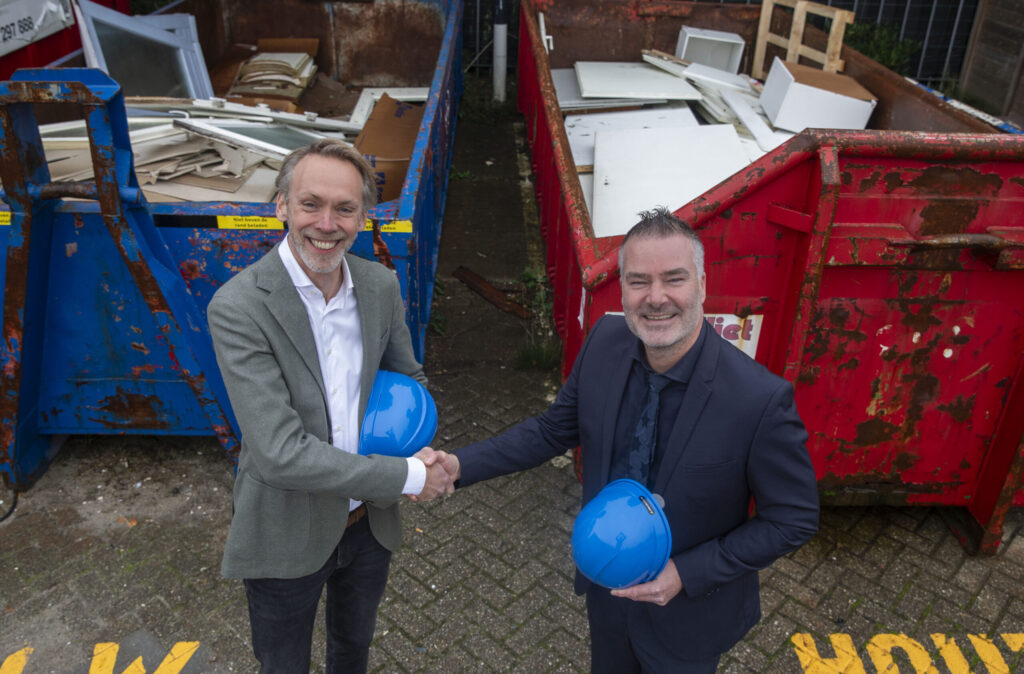Is the scarcity of raw materials the greatest motivator for registering the materials and products used in real estate and infrastructure?
According to Blankendaal, the fact that, in the Netherlands alone, an average of three earths worth of raw materials are consumed per capita makes it painfully clear that something needs to change: ‘Currently, we are slowly eating up the earth. This has disastrous consequences for future generations. We need to radically change our behaviour. Within the construction sector, it is important that we build with renewable materials, design smarter and use Madaster to register the raw materials and products we use.’ Van Doorn concurs and points to the vulnerable role of the construction sector, as has become painfully clear in recent months: ‘As a bulk user of raw materials, the geopolitical arena may cause our sector to come under considerable pressure. By registering materials and products, we can create a future with high-quality reuse of raw materials and products in the built environment. This is important from both a financial and a social perspective.’ And such social value, in itself, is reason enough for pension fund investment company Bouwinvest to implement building registration. De Jong: ‘We have chosen this type of investment because we subscribe to the social value of material registration. This is very important to us, in addition to our financial return as an investor of pension money.”Was registration alone not enough, at a certain point?
While Bouwinvest is taking the first step towards discovering exactly what would be needed with respect to operational processes, developer and builder Giesbers Ontwikkelen en Bouwen is already making full use of all of Madaster’s functionalities. Van Doorn: ‘Because we are active in the entire real estate chain, from the inception to the end of a property’s life cycle, registering projects in Madaster already delivers many benefits for us. For example, a design’s degree of circularity can be measured using the circularity index, and the material and CO2 impact can be shown by generating MPG calculations (Environmental Performance Building). Together with our clients, we are then able to determine the extent to which we can realise and/or improve on the predetermined ambition.’ Project Manager Blankendaal also knows that much can be gained from making smart choices during the designing process; this is where he believes the main behavioural change should take place. ‘I see registration as the ‘enabler’ of circular construction.’ The BIM development of recent decades also provides direction, he says. ‘We have added more and more functionalities to the digitisation process. We have gradually added planning, cost calculations, sustainability parameters and management and maintenance functionalities to our BIM models. This process has also led to the creation of material passports and building dossiers.’Which data source links would you consider interesting and why?
Both Van Doorn and Blankendaal agree that life cycle assessments (LCAs) of the various materials and products used in buildings should be as complete as possible. Van Doorn: ‘This provides insight into pollution, natural resource depletion and greenhouse gas emissions. These are the impacts that we want to reduce as much as possible and even eliminate in the long run.’ But links with manufacturers’ databases are also incredibly important, according to Blankendaal: ‘This further automates the process of creating a building passport and thus makes it cheaper to generate a high-quality passport. This also helps to standardise passports for the entire construction sector.’In which areas would you particularly like to gain some insights?
Both Blankendaal and De Jong see added value in a 3D view of a building in which elements can be selected to reveal their individual characteristics. De Jong adds: ‘If, for renovations, we could gain insight into the new CO2 footprint of a building by means of a renovation simulator, this would enable us to think and act in a more circular way.’ Blankendaal says this is also interesting for private homeowners: ‘An effective building dossier helps owners make the right choices when renovating or extending their homes.’Does registration in Madaster mean that a developer, owner or manager of real estate or infrastructure is well prepared for the future?
De Jong, Blankendaal and Van Doorn are all convinced that registration is the first step in the transition towards circular construction. Blankendaal also expects that material passports will soon become a mandatory part of the completion process of buildings. Blankendaal: ‘It is therefore better to start now with organising your processes accordingly.’ According to Van Doorn, registration serves a property’s entire life cycle and helps to monitor pre-set sustainability ambitions. ‘Together with partners in the chain, a material passport can be filled with increasingly more details up to the point of completion, with data that, in turn, will be relevant during a building’s lifespan and at its end of life. All this for the purpose of maximally contributing to a property’s financial and social future value.’ De Jong adds: ‘It is difficult to predict a building’s value for the year 2050, but that value will certainly not be maximised if the building is not ‘Paris-proof’ and climate-proof and without knowing the materials it consists of.’Join our movement today, start preserving value
Learn about our platformMadaster offers a partner and subscription model
Madaster platform
Step 1
-
Partner
Our partner model provides guidance, support, training and enables you to leverage our ecosystem through marketing and network events.
-
Subscription
Our subscription model gives you access to our platform.
-
Demo
Request a demo to get to know our platform.
Step 2
-
Basic
User 1
Object 1
Onboarding 1x 1,5h
Support 1 object
Update 2x/ year
Forum x
Partner event 1x/ year
Marketing Basic
Client event –
€ 3.500 / year *
-
Extra
User 1
Object 1
Onboarding 2x 1,5h
Support <3 objects
Update 2x/ year
Forum x
Partner event 1x/ year
Marketing Extra
Client event –
€ 5.500 / year *
-
Premium
User 1
Object 1
Onboarding 2x 1,5h
Support >3 objects
Update 2x/ year
Forum x
Partner event 1x/ year
Marketing premium
Client event x
€ 8.500 / year *
-
Madaster PURE
Recommended for experts who want to start uploading directly and who have familiarised themselves with Madaster and building passports! The subscription package is self service.€ 1.000 / year *
-
Private individual
Recommended for private homeowners who want to transparently document and analyse the materials and components they use. Also for students who want to create circular scenarios or a building passport in their thesis.€ 20 / year *
-
Manufacturers
Manufacturers can register their product portfolio on Madaster free of charge if product data is shared with all users. A partnership is required for additional functions.€ 0 / year *
Contact us directly

info@madaster.de
Bundesallee 39/40A
10717 Berlin
Deutschland


